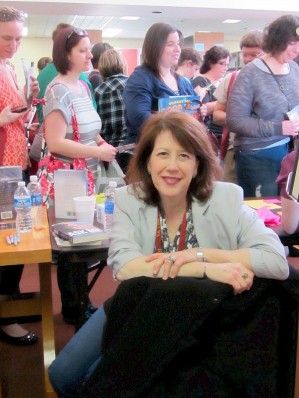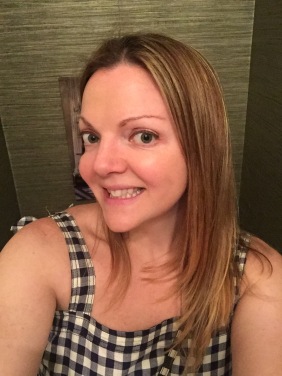Profile: Elise-Marie Santobello
By: Gabriella D’Ippolito
Elisa-Marie Santobello graduated from Fordham University with a Bachelor of Science in Psychology, but she quickly realized she didn’t want to work in a lab. Her parents told her to do some research into what careers were similar to psychology or at least integrated psychology within them in any way.
So she started her journey…
“I became a TA in one of the classrooms I was observing in. There, I got a firsthand look at how important PT [Physical Therapy], OT [Occupational Therapy], and Speech were to a child’s development should they need services. I was able to witness children with no language expression find their voices, which truly sealed the deal for me. The rest, as they say, is history.”

Elise (on the left) with Gabi
Elisa is a a medical speech-language pathologist. The “CCC-SLP” in her title stands for “Certificate of Clinical Competence for Speech-Language Pathologists.” She currently works in the outpatient department at Burke Rehabilitation Hospital in White Plains, New York. I know Elisa from cheerleading in high school—she was my coach. She is also a very good friend of mine. I think her career path is so interesting!
Reading and Writing as a Speech Language Pathologist
For starters, every patient who comes in for an evaluation with Elisa must have an extensive document written up spanning current complaints, past medical history, deficits within the 9 scoped of SLP practice, diagnosis, severity level, and treatment plan/goals targeting the areas of deficit—and Elisa said that was only a FEW things! These documents are extremely important because, depending on how you present your patient, you are someone who can quite literally make or break insurance covering treatment for that patient.
“Your writing is a pivotal part of your daily treatment notes, progress summaries, and discharge summaries that justify continuation of treatment, progress made by your patients, and reasons why they no longer need therapy. As much speech and language therapy as I do in a day, I do just as much writing, if not MORE! It is definitely a necessary evil, and some days it is enjoyable and others it is not!”
In short: writing is a big chunk of her career!
SLP’s are expected to read and interpret high complexity documentation, evaluations, standardized assessments, and much more in order to ensure they are providing the best and most beneficial treatment to our patients.
“Being able to decode language and synthesize it within the parameters of our field is one of the most important skills we must exercise on a daily basis.”
Who influenced you?
Elisa’s mom has influenced her in a big way in general.
“From day one of the start of my prerequisite speech courses, through the waitlist notifications, to the second-round applications, through the tears, stress, and triumphs, she has been by her side yelling “no matter what, DO NOT GIVE UP.” Her motto has always been “you get knocked down 7 times, you stand up 8.” She never let me quit even when the times were tough, and for that, I credit her as being the most influential person who helped lead me to career success.”
Elisa’s Advice to College Students
She said that we should “Work HARD!” There are going to be TONS of applicants who have the same types of resumes, grades, standardized test scores, and interview answers as you.
“What I can tell you is do absolutely everything to make yourself stand out from the crowd. If you think that extra month of shadowing in that hospital/school/clinic won’t help—it might! That research project that could get you published—go for it! I cannot stress preparedness enough. The field is competitive and setting yourself up for success is your best asset. If this is your passion, never relent in your attempts at making your dream happen.”




